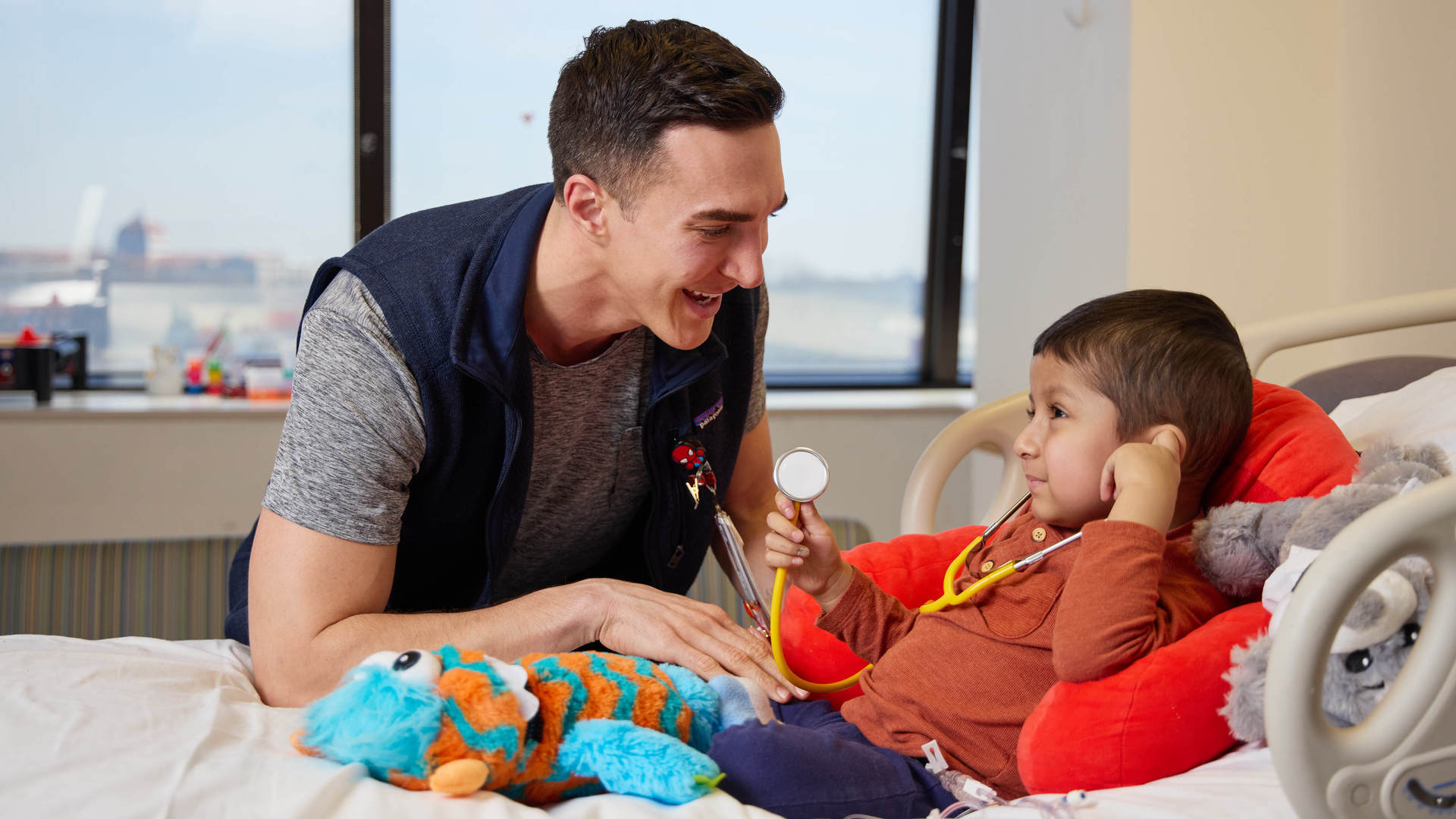Condition
Pediatric Rhabdomyosarcoma
What You Need to Know
Rhabdomyosarcoma is a type of cancer. It starts in cells that should grow into skeletal muscle cells. This rare cancer is most common in children under age 10. It can start anywhere in the body.
Key Symptoms
Symptoms depend on where the tumor is and how big it is. There may be no symptoms until the tumor is very large. The first sign might be a lump or swelling. Other symptoms will depend on where the tumor is growing.
Diagnosis
If you pediatrician suspects rhabdomyosarcoma, your child will be referred to a child cancer specialist (pediatric oncologist). Some of these tests will be needed:
- Blood and urine tests
- X-ray
- CT scan
- MRI
- Bone scan
- Positron emission tomography (PET) scan
- Tumor biopsy
- Bone marrow aspiration or biopsy
- Lumbar puncture
Treatment
Rhabdomyosarcoma can be treated with any of these:
- Surgery
- Chemotherapy
- Radiation therapy
- Clinical trials
- Supportive care

Schedule an Appointment
Our pediatric specialists provide personalized care for your child’s physical, mental and emotional health needs. Meet the providers who treat rhabdomyosarcoma and schedule an appointment today.
Frequently Asked Questions
What is rhabdomyosarcoma in children?
What causes rhabdomyosarcoma in children?
Which children are at risk for rhabdomyosarcoma?
What are the symptoms of rhabdomyosarcoma in children?
How is rhabdomyosarcoma in children diagnosed?
How is rhabdomyosarcoma in children treated?
What are possible complications of rhabdomyosarcoma in a child?
How can I help my child live with rhabdomyosarcoma?
When should I call my child’s healthcare provider?
Departments that Treat Rhabdomyosarcoma

Oncology
The Oncology Program at Children's National is ranked one of the best cancer centers for children by U.S. News & World Report thanks to our high level of experience and expertise. Learn more about this program.

Help Kids and Make a Difference
Invest in future cures to help children have brighter futures.





